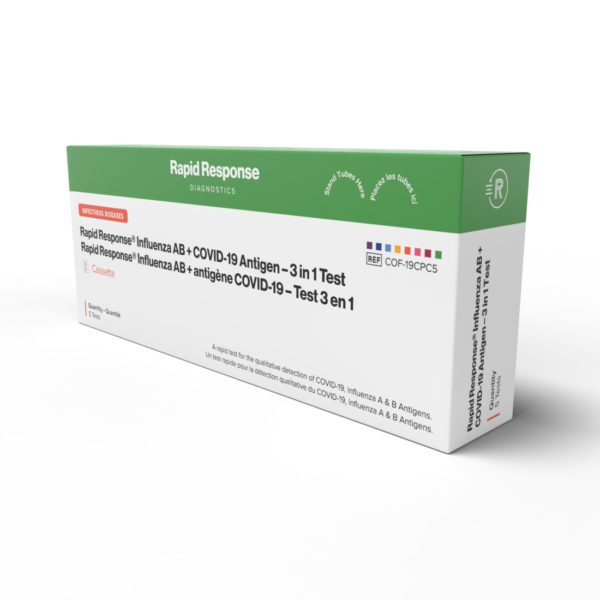Strep throat is a common bacterial infection that’s highly infectious.
From what causes it to what you should do to prevent it, here’s everything you need to know about strep throat.
What is strep throat?
Strep throat, caused by group A Streptococcus bacteria, is an infectious condition primarily affecting the throat and tonsils and is known for its high level of contagiousness. The bacteria spread through respiratory droplets, direct contact and occasionally contaminated food. Exposure to infected individuals can lead to symptoms developing within 2 to 5 days.
Although serious complications are rare, they can include abscesses, sinus infections, rheumatic fever and kidney diseases. Prevention focuses on good hygiene practices like handwashing and covering coughs to minimize infection risks and safeguard both oneself and others from strep throat.
Is strep throat contagious?
The bacteria that cause strep throat spreads through respiratory droplets when an infected person talks, coughs or sneezes. Though less common, it can also be passed through contaminated surfaces.
Strep throat is a highly contagious infection that if you have a direct contact with an infected individual, especially through sharing utensils or personal items, you’re highly likely to get infected.
Strep throat symptoms
If you have strep throat, you may experience any of these symptoms:
- Sore throat
- Painful swallowing
- Red and swollen tonsils
- Fever
- Headache
- Rash
- Swollen lymph nodes in the neck
In children, additional symptoms may manifest as:
- Stomach pain
- Vomiting
- Strawberry-like appearance on the tongue
What causes strep throat?
Strep throat is caused by bacteria called Streptococcus pyogenes, which is also known as:
- Group A Streptococcus
- Group A strep
- GAS
Risk factors
Several factors increase the risk of developing strep throat children aged from 5 to 15 are more susceptible to this. These include:
- Frequent exposure to infected individuals in settings like schools or daycare centers
- A weakened immune system due to illnesses or medications
- Not practicing good hygiene habits
Other risk factors include:
- Having a history of close contact with someone diagnosed with strep throat
- Living in crowded environments
What happens if you contract strep throat while pregnant?
During pregnancy, the immune system undergoes huge changes that can affect how the body responds to infections like strep throat.
Strep throat in pregnant people can lead to complications if left untreated, which can potentially impact both the mother and the developing fetus. If you’re pregnant and you suspect that you have a strep throat, immediately seek your healthcare provider so they can guide you with an appropriate treatment to manage the infection. In this situation, healthcare providers may opt for antibiotics safe for use during pregnancy.
How do you treat strep throat?
There are different approaches to consider when it comes to treating strep throat. While your healthcare provider will prescribe you with medicines, you can also practice home remedies to ease your symptoms. Home remedies for strep throat symptoms
Effective home remedies can help alleviate the strep throat symptoms and help in a more comfortable recovery process.
These remedies include:
- Gargling with warm salt water for inflammation and pain
- Drinking soothing liquids like warm tea with honey to ease discomfort
- Using a humidifier in your room to keep the air moist and relieve throat irritation
- Resting and staying hydrated
- Taking over-the-counter pain relievers like ibuprofen or acetaminophen
However, it is essential to consult a healthcare provider for proper diagnosis and treatment, especially if symptoms persist or worsen.
These home remedies, combined with medical advice, can contribute to a more manageable experience while dealing with strep throat. especially if symptoms persist or worsen.

Are essential oils effective for strep throat?
There are mixed reviews on whether essential oils as a supplement to conventional treatment is effective in treating strep throat. Even if their effectiveness towards sore throat isn’t established, these essential oils are known for their antimicrobial properties:
- Tea tree
- Oregano
- Lavender
If you want to try using essential oils for a strep throat, you can:
- Dilute and apply topically on the neck or chest
- Add to a bath
- Add a few drops into a diffuser
What are the complications that can arise from strep throat?
Though uncommon, strep throat can complicate and lead to serious health issues if left untreated.
These complications include:
- Formation of abscesses around the tonsils or in the neck
- Sinus and ear infection
- Rheumatic fever, a rare but potentially life-threatening inflammatory disease that can damage the heart, joints, skin, and brain
- Glomerulonephritis, a kidney disease
How is strep throat diagnosed?
To give a proper diagnosis if you have strep throat, your healthcare provider will perform two main tests:
- Rapid strep test
- Throat culture
Rapid strep test
Rapid strep tests are a common method that detects whether there’s a presence of group A Streptococcus bacteria in your throat. To perform this, a healthcare professional will take a throat swab and the test kit will identify specific antigen from the within minutes.
While rapid strep tests are convenient and provide quick results, they may have a higher rate of false negatives compared to throat cultures. In cases where the rapid strep test is negative, but symptoms persist, healthcare providers may follow up with a throat culture to confirm the diagnosis.
Throat culture
A throat culture is a diagnostic test commonly used by healthcare providers to accurately identify the presence of group A Streptococcus bacteria in cases of suspected strep throat. During the test, a healthcare professional will take a sample from the back of your throat using a sterile swab. This sample is then cultured in a laboratory to allow the bacteria to grow. This way, they can analyse it and properly identify the bacteria.
Throat cultures are particularly beneficial if your rapid strep tests yield negative results, but symptoms persist. Since throat cultures are more sensitive and specific, it takes up to 2 days to get its results. Once the bacteria are identified, your healthcare provider can prescribe the proper antibiotics to fight the infection effectively.
How do you prevent strep throat?
To lessen the risk of contracting strep throat, focus on practicing good hygiene like frequent handwashing with soap and water, especially before eating or touching the face.
Other preventive measures include:
- Covering your mouth and nose with a tissue or elbow when coughing or sneezing
- Avoiding close contact with individuals who are sick
- Disinfecting commonly touched surfaces
- Maintaining a healthy lifestyle
- Getting enough sleep
- Staying hydrated
By implementing these preventative measures, not only can you protect yourself from strep throat, but you can also contribute to protecting the well-being of those around you.
Frequently asked questions
Can strep throat lead to other complications besides those mentioned in the article?
Strep throat can lead to serious complications beyond those typically mentioned, such as:
- Scarlet fever
- Pneumonia
- Toxic shock syndrome
Are there any specific dietary recommendations or restrictions for someone with strep throat?
You’re not restricted to any food if you have strep throat. However, it’s advisable to keep yourself hydrated by consuming soothing liquids like warm broth or tea to ease discomfort. Lastly, consult with your healthcare provider for personalized guidance.
Can strep throat be transmitted through sharing food or drinks?
Strep throat can be transmitted through sharing food or drinks due to the bacteria’s ability to spread via respiratory droplets and direct contact. Proper hygiene practices, like avoiding shared items, can help prevent transmission.
Is it possible to have strep throat without experiencing a sore throat?
It’s possible to have strep throat without experiencing a sore throat. Some people, particularly children, may present with symptoms like fever, headache and stomach pain without the typical sore throat.
Are there any alternative or natural remedies that can help alleviate strep throat symptoms?
While alternative or natural remedies may offer symptom relief, antibiotics are the standard treatment for strep throat. Consult a healthcare provider for proper diagnosis and guidance. Prioritize prescribed medications for effective management and prevention of complications.
Key takeaway
Strep throat is a common bacterial infection caused by group A Streptococcus bacteria, characterized by symptoms such as sore throat, fever and swollen tonsils.
It’s highly contagious and can lead to serious complications if left untreated. If you feel like you’re experiencing symptoms of strep throat, take the time to get proper diagnosis and treatment.























































